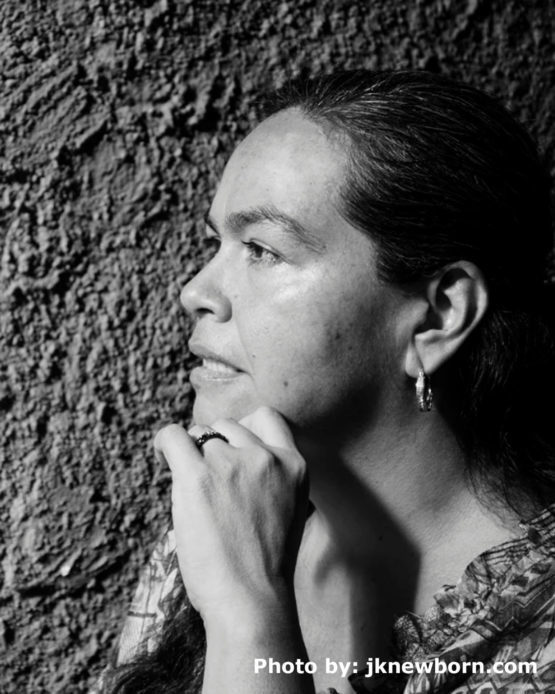Bobbie Becerra is a storyteller, writer, and activist. She grew up in the Echo Park area of Los Angeles with her brother and mom. Her family struggled. Not only were they a welfare family, but sexual abuse and violence were normalized. As part of the family, she was prepped by mom to grow up into an adult who accepted abuse from her partners.
Bobbie was 30 years old when her mom died. She had always understood that mom was her connection to abuse. She stayed in abusive relationships so she could maintain a connection with her mom. Once mom died, she knew she had a way out.
Bobbie wanted to maintain a relationship with her brother, who had also been a victim of abuse. With mom gone, Bobbie saw an opportunity to repair their relationship.
With the help of therapy and a lot of personal work, Bobbie could see a way to a better life. Mom had been very damaging, but she had also taught Bobbie great tools to succeed. She was savvy and resilient.
Her childhood in abuse and poverty became the groundwork for her work as an activist. Bobbie started writing in June 2015. She wanted to understand how children who hadn’t had a choice in abuse became adults who couldn’t “just leave”. In her book, she began to explore how her childhood foundation had built her into a woman willing to maintain violent relationships. Her book, Learning to Take It, is her long response to this question. It was published in 2016 with her brother’s approval.
Her book invites people to consider the question: You might not have had choice to live in abuse as a child, but as an adult, why didn’t you just leave?
She wants her readers to see the judgement behind that question. She wants readers to consider how what a child learns influences how they live the rest of their lives. She invites people to discuss these issues openly.
Currently, Bobbie has spoken at The Orphaned Earring Event at Maryvale Orphanage, California State University Dominguez Hills’ #StartTalking Sexual Abuse Awareness Event, CAST (Child Abuse Services Team) in Orange County, and Orange County Children and Family Services Supervisors Meeting, as well as smaller community meetings and personal groups. She wasn’t afraid of public speaking. But she understood that talking about the personal aspects of her life would be different from the kinds of discussions she’d led as a Quality Management and Training professional. Her talks would be deep and personal. And she wanted to be able to accept feedback, criticism and questions with openness and respect to where the questions might be coming from. To prepare for this, she decided to practice storytelling in her community.
She came across a storytelling show in Los Angeles that invited audience members to come up and speak. Bobbie went home, wrote a story and was booked to tell her story on stage right away. Onstage storytelling became a great way for her to express herself, share something real about herself and get some practice. To date, Bobbie has shared stories on Muse Lit Salon, BUSted Los Angeles, Shoot ‘Em Up, and the Moth.
Storytelling also helped provide parameters to her writing. Also, her story on Shoot ‘Em Up led to a movie she’s currently working on. The movie tackles issue of race and how people who are ingrained in chronic discrimination react to it.
Bobbie continues to write stories. Besides the movie, she’s working as a voice actor on the podcast The Bleachers. She has also been a guest on Nurses and Hypochondriacs speaking about the medical impacts of abuse. She is working on a second book with her brother. This book uses the ACE study (Adverse Childhood Experiences) as a foundation to explore the physical aspects of abuse and how they are carried on into adulthood.
Bobbie is inspirational to all women trying to imagine themselves into a better life.
To learn more, visit her website.

